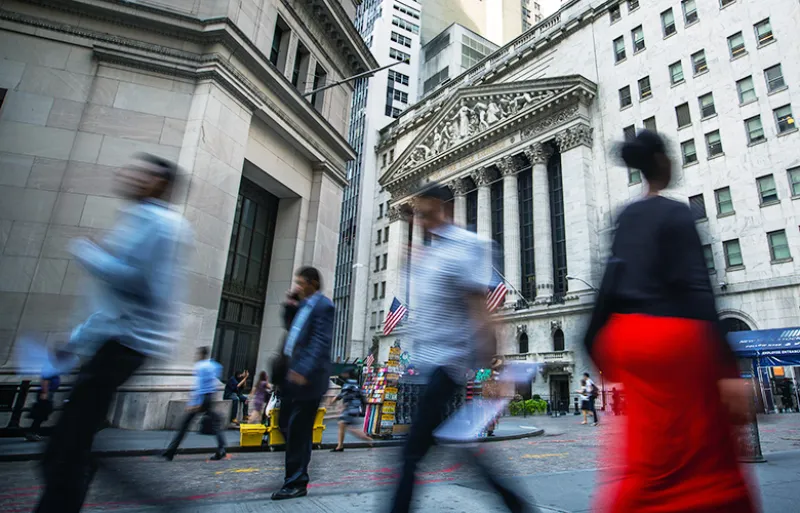Big investors are preparing for dismal markets and a recession even as the stock market climbs to new highs this year.
According to Boston Consulting Group’s ninth annual survey on investor sentiment, 46 percent of institutional investors are pessimistic about the direction of the equity markets over the next year, up from 32 percent a year ago and only 19 percent in 2015. The bearish sentiment is the most widespread since 2009, when the U.S. was mired in the Great Recession, BCG found over a two-week period ending early last month.
The firm probed 250 investors overseeing $500 billion in assets about their outlook for equity markets, the global economy, and the ability of companies to keep creating value. Sixty-eight percent said the market is overvalued, estimating that stocks are trading 15 percentage points too high on average. The vast majority of respondents signaled a desire for companies to invest in growth instead of using cash for shareholder dividends or debt reduction.
“When the next recession or correction occurs, a chasm could emerge between companies that investors believe have strong potential for value creation in the medium to long term and companies that investors feel are too focused on the short term,” BCG said in a report on its findings.
Almost 80 percent of investors expect a recession will start in the next three years, according to the survey. The most frequently cited reasons underlying their pessimistic view are macro factors such as rising interest rates, the U.S. political climate and unstable geopolitics.
Sentiment is souring despite the Standard & Poor’s 500 index gaining 19 percent this year through December 13.
Looking out over three years, BCG found that 36 percent of respondents are bearish about the equity market. That’s a sharp increase from 2016 when only 16 percent of investors were pessimistic about their three-year outlook.
Despite the downbeat attitude, investors say they don’t want company executives to try and pump up short-term returns at the expense of long-term growth. BCG said 88 percent of respondents to the survey believe company managers are too focused on short-term initiatives, up 26 percentage points from last year’s findings.
[II Deep Dive: A Hedge Fund Veteran Makes Contrarian Call on Credit]
The majority of investors want company executives to focus on the future, whether through organic growth or by making strategic acquisitions.
Only 9 percent of investors cited earnings-per-share growth as a key consideration when asked about the criteria they will use to make investments over the next 12 to 18 months. Fifty-one percent cited strategy and vision of company management as the most important factors for potential investment, up from 32 percent last year, the survey shows. Management’s credibility and track record was the second-most important factor for investment, capturing the vote of 47 percent of respondents.
“Investors are sending a clear signal to senior executives that aligning business, financial, and investor strategies, as well as strong management processes and systems, is essential,” BCG said.







